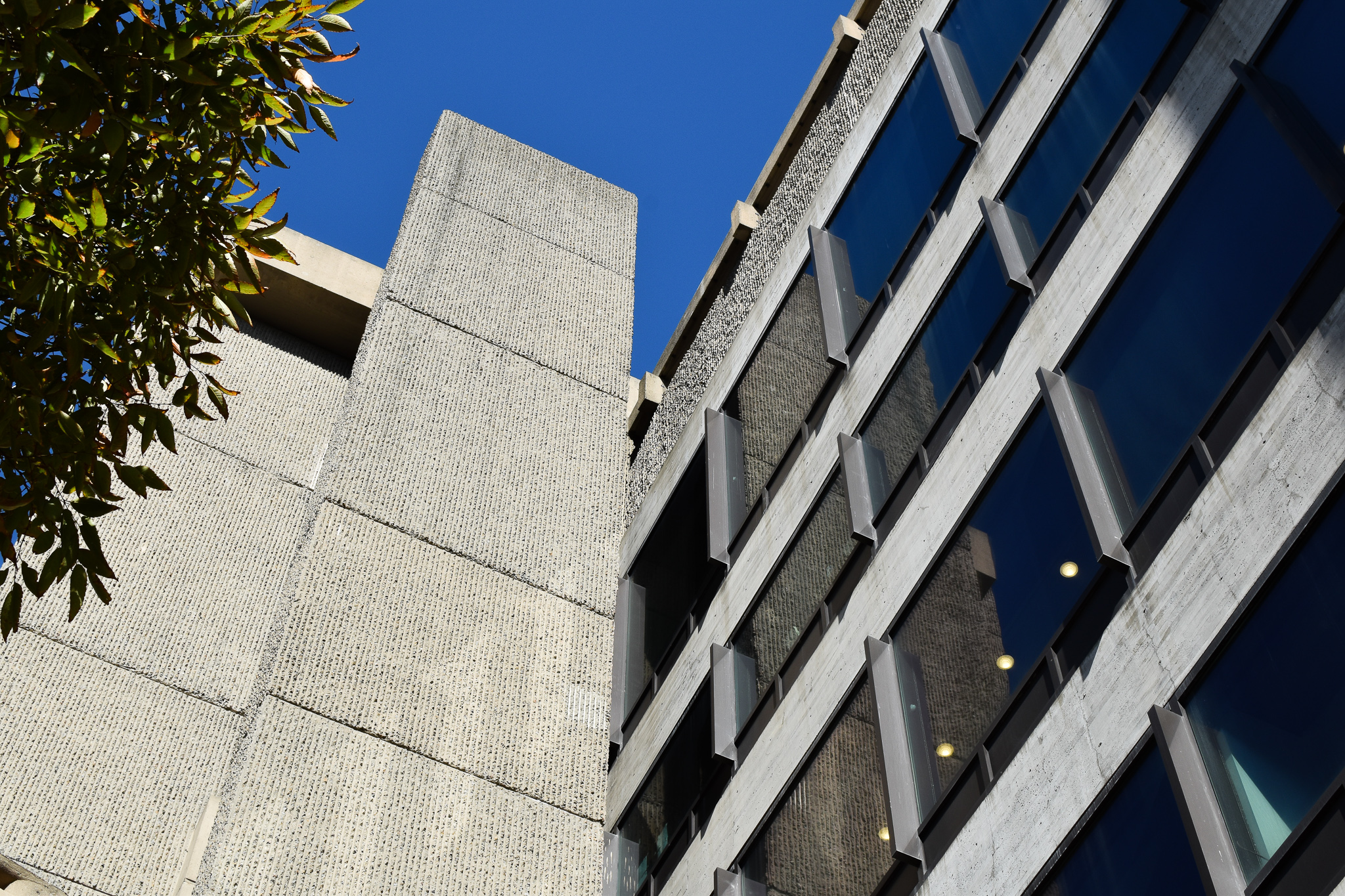Yale School of Architecture Symposium examines Yale’s architectural strategies, shortcomings and sustainability plans
Deborah Berke, Maurie McInnis, Alan Organschi and Julie Zimmerman spoke on the need for interdisciplinary solutions for climate change at the “Regenerative Architectural Strategies for a Planet in Crisis” symposium.

Karen Lin
On Friday, Feb. 21, members of the Yale community gathered in Hastings Hall to hear Yale leaders discuss interdisciplinary approaches and sustainable architectural practices collaboration in response to worsening climate change. The keynote panel “Architecture, Science, and Planetary Governance” featured Dean of the Yale Architecture school Deborah Berke and University President Maurie McInnis.
The keynote panel was part of the larger symposium “Building a Planetary Solution: Regenerative Architectural Strategies for a Planet in Crisis,” which took place from Feb. 20-22 at the School of Architecture.
“We are really trying to get at the ways in which the material means and methods … that are engaged when we make buildings and, more importantly, cities might be transformed from forces of planetary damage and predation into mean of restoring the climate, social equality and opportunity,” said architect Alan Organschi ARC ’88, senior critic at the School of Architecture.
Organized by Organschi, the symposium consisted of a series of panels and lectures on the social, economic and environmental impacts of the building sector.
Organschi acted as the panel moderator, directing questions at Berke, McInnis and Julie Zimmerman, the inaugural vice provost for Planetary Solutions.
The University’s own sustainability efforts were also at the center of the panel discussion and became a subject of critique.
As a professor of green engineering, Zimmerman emphasized the importance of forming lasting connections across disciplines in order to promote innovations in sustainable technologies. Her work established the “Twelve Principles of Green Engineering,” a framework that outlines how to make chemical processes greener.
“Anyone who’s been around Yale knows the saying, ‘Yale is full of lots of stars, but no constellations.’ We talked about Planetary Solutions as a constellation factory. Not only do we want to connect people on campus across disciplines, but we want to connect people on campus to people that are off campus,” said Zimmerman.
Forming “constellations” — meaningful and productive conversations — across disciplines was a major theme in the panel and symposium at large.
Organschi said he wanted the symposium to encompass the social and economic impacts of the building industry to create a “much broader discussion about society.”
“We could have a conference that really, putatively was about building materials, and the next thing we knew it was about the planet,” said Organschi.
According to Berke, Yale could do more to catch “low-hanging fruit.” Berke pointed to the wasted energy and money spent heating empty buildings.
“I don’t think we are careful enough, cautious enough, wise enough when we plan the buildings we are going to build,” said Berke.
Organschi expressed a similar concern for the “growth-oriented” and “consumption-oriented” economy under which the University operates.
Many of the questions regarding the University’s sustainability efforts were directed towards McInnis.
One audience member asked McInnis how cuts in federal funding could potentially impact upcoming plans to construct additional lab spaces and a Thermal Utilities Plant on Science Hill, as well as other sustainable efforts currently in the works.
McInnis responded by addressing the potential impact of recent federal funding cuts and proposed increased taxation to the University endowment. She predicted that there may be projects that do not come to fruition due to funding issues.
“We’re not gonna stop buildings mid-course. But of our 10 to 15 year plan, probably some things are gonna have to get delayed, and there might be some things we ultimately can’t afford to do. So you have to make choices,” said McInnis.
Nevertheless, Organschi remains hopeful for the future of sustainability at Yale. He praised the “enormous capacity” and “incredible programs” of professors and researchers.
According to Organschi, recent challenges to sustainability are opportunities for the University to grow and lead the effort.
“I think this new political crisis we are facing is an incredible opportunity for Yale to pull itself together as an institution with this incredible breadth of capacity, knowledge, research power, all of these things, to start to really push back against these forces we see as really deleterious to the planet,” said Organschi.
The Yale School of Architecture is located at 180 York St.







